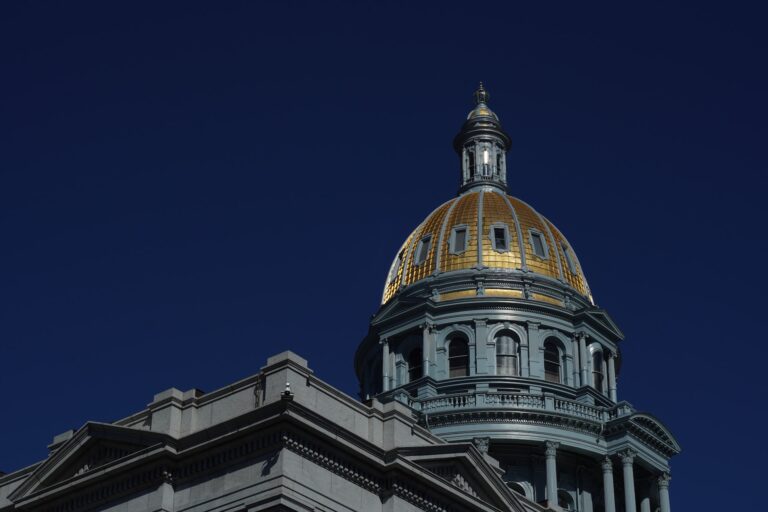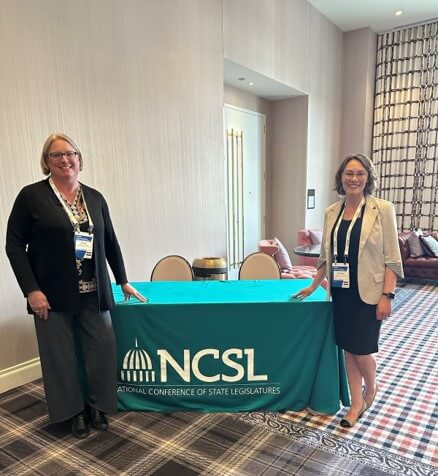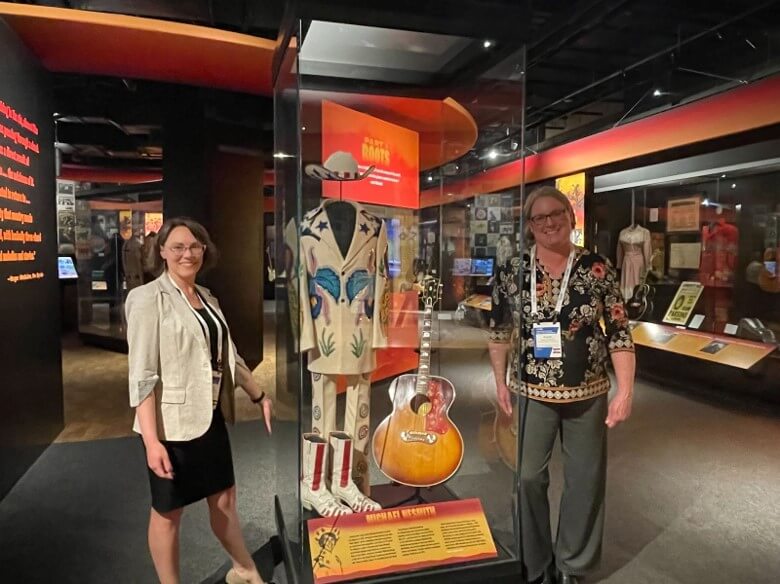
In October, Drs. Courtney Everson and Kristin Klopfenstein presented on the development and initial implementation of the Evidence-Based Decision-Making (EBDM) approach in Colorado to state legislators, budget officers, and impact officers from 10 states. The invitation from the National Conference of State Legislatures (NCSL) to present to their Governing for Results Network in Nashville, Tennessee, provided a timely opportunity to share learnings, resources, and the strong efforts of early champions.
“It was so encouraging to meet folks from other states who are taking a similar approach to driving culture change around data use. We will be following up with legislative and executive branch staff from several states to compare notes and learn from one another to accelerate progress,” said Dr. Klopfenstein. “The variety of political perspectives in the room confirmed that the efforts Colorado is taking to integrate EBDM into the everyday work across state government is nonpartisan and something everyone can get behind.”

Drs. Kristin Klopfenstein (left) and Courtney Everson (right) at the
NCSL Governing for Results Network in Nashville, TN.

Dinner for conference attendees at the Country Music Hall of Fame led to much discussion about the diversity of musical preferences among participants. Kristin and Courtney also broadened their fashion horizons touring the museum before dinner. .